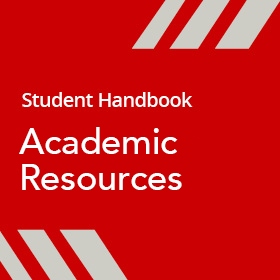Achieve Your Educational Goals with Docentra High-Quality Study Resources
Achieve Your Educational Goals with Docentra High-Quality Study Resources
Blog Article
Where to Find High-Quality Academic Resources for Your Research
Determining high-quality scholastic sources is crucial for strenuous research study, yet navigating the vast landscape of offered products can be discouraging. In addition, on-line academic data sources like JSTOR and PubMed aggregate academic write-ups, while open gain access to journals provide more inclusive accessibility to research findings. Recognizing just how to utilize these sources successfully could significantly affect your study results.
University Libraries

Beyond physical collections, university libraries typically provide customized research study support, consisting of appointments with librarians that possess subject expertise (Docentra). This support can dramatically enhance the effectiveness and performance of the study process, allowing users to browse complex information landscapes with higher convenience
Furthermore, several libraries give access to uncommon and archival products, which can be indispensable for advanced research tasks. Such unique resources usually include key documents, manuscripts, and historic collections that are not readily available somewhere else.
In addition, university libraries frequently hold workshops and seminars focused on improving details proficiency skills. These campaigns empower pupils and faculty to seriously examine resources, a vital skill in today's information-rich environment. On the whole, university libraries not just act as repositories of knowledge however likewise function as vibrant hubs that promote scholastic development and technology.
Online Academic Databases
In the world of academic study, on the internet scholastic data sources play an essential role in providing pupils and scholars with instant accessibility to a wide range of academic short articles, journals, and other critical resources. These digital repositories serve as centralized platforms where customers can successfully look for peer-reviewed literature across various disciplines.
Popular data sources such as JSTOR, PubMed, and Scopus host considerable collections that cover a wide range of topics, from the liberal arts to the scientific researches. Docentra. By utilizing sophisticated search functionalities, scientists can refine their inquiries, filter outcomes by magazine date, and gain access to citation devices, thus enhancing the study procedure's effectiveness and precision
Additionally, numerous databases use features like alerts for brand-new magazines and the capacity to save and arrange write-ups, even more simplifying the research study experience. Subscriptions to these data sources are frequently given through scholastic establishments, giving trainees and faculty members unrestricted access to costs web content.
Open Access Journals
Increasingly, researchers are transforming to open up accessibility journals as a corresponding resource to traditional academic databases. These journals offer a useful system for sharing study searchings for without the economic obstacles commonly associated with subscription-based publications. Open up access models allow for cost-free on the internet accessibility to scholarly write-ups, guaranteeing that research study comes to a bigger audience, including specialists, policymakers, and the public.
The high quality of open gain access to journals has considerably enhanced, with numerous adhering to strenuous peer-review procedures and being indexed in reputable data sources. This shift has cultivated better transparency and collaboration in the academia, as researchers can share their work quicker and get feedback from varied point of views.
Moreover, the spreading of open gain access to journals aligns with the global motion towards open scientific research, promoting the concept that openly funded study ought to be freely offered to all. Researchers looking for high-grade academic sources must consider trustworthy open gain access to journals, such as those listed in the Directory site of Open Access Journals (DOAJ) or those released by recognized scholastic cultures. By integrating open accessibility journals into their study techniques, scholars can boost the visibility and effect of their job.
ResearchGate and Academia.edu
ResearchGate and Academia.edu have arised as pivotal systems for scholastic networking and knowledge sharing, with numerous scientists leveraging these sites to distribute their job and connect with peers. Both platforms permit users to produce accounts that display their publications, research study passions, and academic achievements, assisting in better visibility within the scholarly area.
ResearchGate, founded in 2008, concentrates on promoting cooperation amongst researchers through functions such as research study cooperation tools, project sharing, and question-and-answer online forums. Users can post their papers, participate in discussions, and comply with the work of others, boosting the joint possibility Learn More of their research. The platform also offers metrics on paper exposure and downloads, enabling scientists to determine the impact of their work.
Academia.edu, introduced in 2008 as well, operates in a similar way yet stresses the sharing of academic papers. Individuals can comply with certain research study subjects and get updates on new publications within their areas of rate of interest. Furthermore, Academia.edu provides analytics on visitor engagement, helping researchers understand their target market much better.
Both systems function as useful sources for accessing top notch scholastic material and fostering connections that can lead to impactful collaborations.
Google Scholar and Beyond
Academic networking view it systems like ResearchGate and Academia.edu play a substantial function in distributing research, yet Google Scholar supplies a various dimension by functioning as a thorough search engine for academic literary works. It indexes a large array of resources, consisting of peer-reviewed short articles, theses, books, meeting procedures, and patents, making it an invaluable device for researchers across self-controls.
Google Scholar offers numerous attributes that enhance study effectiveness. The citation tracking feature allows customers to see exactly how frequently a paper has actually been mentioned, giving understandings into its impact within the scholastic community. In addition, the "related write-ups" function aids researchers uncover similar researches, helping with an extra extensive expedition of a topic.

Final Thought
In conclusion, accessing premium scholastic sources is essential for extensive research study. College collections give extensive collections and professional support, while on-line scholastic data sources such as JSTOR and PubMed systematize academic articles. Utilizing these resources collectively can considerably improve the high quality and depth of academic research.
Report this page